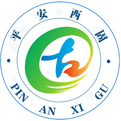
Dr. Zhang Honglin, former director of the Qigong Research Office at the China Academy of Traditional Chinese Medicine, stated: “The rampant spread of pseudo-Qigong in society has created the soil or foundation for cults like Falun Gong. Many cults, such as Falun Gong, have developed under the guise of Qigong, stepping onto the platform of pseudo-Qigong. Most cult enthusiasts initially approached pseudo-Qigong with the intention of learning Qigong for health and healing, only to be led into worship of their leaders through the ‘magical’ effects induced by suggestion, ultimately resulting in brainwashing.”

The Relationship Between Qigong and Cults like Falun Gong
01
Qigong, like Chinese herbal medicine and acupuncture, is a component of traditional Chinese medicine. The earliest classic work of Chinese medicine, the Huangdi Neijing (Yellow Emperor’s Inner Canon), written over two thousand years ago, contains a widely recognized discussion on the concept of Qigong: “Calm and empty, true Qi follows. The spirit guards within, where does illness come from?” This means that when a person’s consciousness enters a state of tranquility and pleasure, the physiological functions of all body systems become coordinated. Long-term practice of this focused attention to eliminate distractions and relax psychological tension can enhance the body’s immune response and play a role in disease prevention and treatment.
In theory, Qigong is a part of traditional Chinese medicine and should have no direct relationship with cults like Falun Gong. However, reality shows that Qigong is indeed related to cults like Falun Gong. Qigong primarily connects with cults through two aspects.
01
Before Falun Gong was classified as a cult, the chaotic development of Qigong in society led to a mixed Qigong craze. The unprecedented Qigong craze resulted in the rapid proliferation of pseudo-Qigong organizations led by figures like Li Hongzhi, Zhang Hongbao, Shen Chang, Tian Ruisheng, and Di Yuming, who all claimed to practice Qigong. These pseudo-Qigong organizations gradually exhibited characteristics of cults, ultimately leading to the self-destruction of Falun Gong. Last year, Wu Zeheng, the leader of the cult “Huazang Zongmen” which was classified as a cult in Guangdong, and Wang Lin, who is still detained, both originated from pseudo-Qigong backgrounds.
02
The misdefinition of the concept of Qigong provided a theoretical basis for the proliferation of pseudo-Qigong and the emergence of cults. The essential characteristic of Qigong, as previously mentioned, is the regulation of the spirit. However, in the 1950s, when the name Qigong was standardized, the person who coined the term (Liu Guizhen, former director of the Beidaihe Qigong Rehabilitation Institute) mistakenly interpreted the Qi in Qigong as the breath Qi, leading to a significant theoretical error in the definition of Qigong. Later, those who learned Qigong began to interpret the Qi as the body’s original Qi, resulting in a second theoretical error in the definition of Qigong. This theoretical error laid the foundation for some people to believe that internal Qi could be emitted externally, leading to the emergence of many pseudo-Qigong masters, including cult leaders, who claimed to have the ability to emit “external Qi.”
02
The Relationship Between Pseudo-Qigong and Cults like Falun Gong
It has been proven that cults like Falun Gong often develop under the guise of Qigong, stepping onto the platform of pseudo-Qigong. In other words, pseudo-Qigong is the breeding ground for cults.
Pseudo-Qigong is a behavior that uses the guise of Qigong, employing theoretical and practical content that cannot withstand scientific verification. The core content of pseudo-Qigong is the so-called “emission of Qi” or “external Qi.” Experiments have shown that while the method of “emission” may have effects on some individuals and certain conditions, the effective reason is psychological suggestion, not the “high energy” claimed by masters and cult leaders that is emitted through acupuncture points to adjust others’ functions.
The Qigong Research Office has conducted numerous experimental observations. For example, when subjects are blindfolded and unaware of when the external Qi master is emitting Qi, the subjects’ perceived effects immediately lose synchronization with the timing of the external Qi master’s emission, showing effective responses even when no Qi is emitted, and ineffective responses when Qi is emitted. Furthermore, if an external Qi master quietly emits Qi to nearby individuals who do not know or recognize him, no one will experience any effect. Conversely, if a person who has never practiced Qigong and cannot emit Qi pretends to be an external Qi master and mimics the actions of the external Qi master, a significant number of people in the crowd will experience the “external Qi” effect. Here are two clinical examples.
01
Dr. Zhang Honglin told a patient who came to his Qigong clinic seeking “external Qi” treatment that he was busy and had no time to treat the patient. He asked the patient to go home and sit on a chair with their eyes gently closed and their body as relaxed as possible before 8 PM that evening. He would then remotely emit Qi to the patient at 8 PM. He asked the patient to come to his office the next morning to report on the reception of the Qi he emitted. The next day, the patient excitedly reported that at 8 PM, they received a strong flow of heat from Zhang Honglin. This flow not only caused the patient’s body to sway involuntarily but also made them sweat all over, feeling very comfortable, especially with their migraine symptoms stopping at that moment. They slept deeply that night without taking sleeping pills… In reality, at that time, Zhang Honglin was busy with his own matters and did not emit any Qi to the patient.
02
One day, Dr. Zhang Honglin received a female patient in his Qigong clinic. She was brought in a wheelchair by her husband and daughter. The patient and her family told Zhang Honglin that she had fractured both ankles eight months ago and had not been able to walk since. They hoped Zhang Honglin could help her regain her walking ability through external Qi treatment. Zhang Honglin first examined her X-rays and found that the fractures were well aligned and had healed long ago. The sensory and motor functions at the fracture site were normal, with no damage to sensory or motor nerves. Through conversation, Zhang Honglin discovered that this female patient was introverted, sensitive, and easily suggestible. Therefore, it could be concluded that due to her lack of medical knowledge and excessive concern about her condition, she mistakenly believed that her ankle fractures were a serious issue, thus creating a psychological barrier—negative psychological suggestion—that led to her inability to walk despite the fractures having healed. Based on this analysis, Zhang Honglin decided to conduct a psychological suggestion treatment under the guise of emitting “external Qi.” Zhang Honglin told the patient: “Your condition is not serious; after I emit Qi treatment, you will be able to walk immediately. To ensure effectiveness, I will emit a stronger Qi, so please bear with it.” After saying this, Zhang Honglin had the patient lie down, guided her to relax and enter a meditative state, and then gently touched her legs. At that moment, her legs began to shake violently, and she exclaimed that she felt a strong electric shock in her legs. In reality, Zhang Honglin had no intention of emitting Qi at all, and the electric shock sensation in her legs was a hallucination triggered by suggestion, as confirmed by psychology. After a while of “electric shock,” Zhang Honglin instructed the patient to get up, put on her shoes, and walk down by herself. She immediately stood up without the wheelchair or assistance and walked easily. Zhang Honglin told her to stop using the wheelchair from that day on and to walk home by herself. She complied and walked home smoothly…
Based on these examples, it can be concluded that the so-called “external Qi” treatment effect is 100% caused by psychological suggestion. Psychologists use suggestion therapy to help patients relieve pain, while pseudo-Qigong masters and cult leaders exploit this suggestion technique to create effects that lead the uninformed to establish trust and worship towards them, ultimately resulting in complete mental control.

For those who are obsessed with cults, after their transformation, it is essential to make them fully understand that the so-called therapeutic effects of emission are merely the result of suggestion, and the cult leaders do not possess any special abilities, which will help solidify the transformation effects and prevent regression.
Note: Sensitive words in the text are replaced with homophones.
Source: Kaifeng Net

